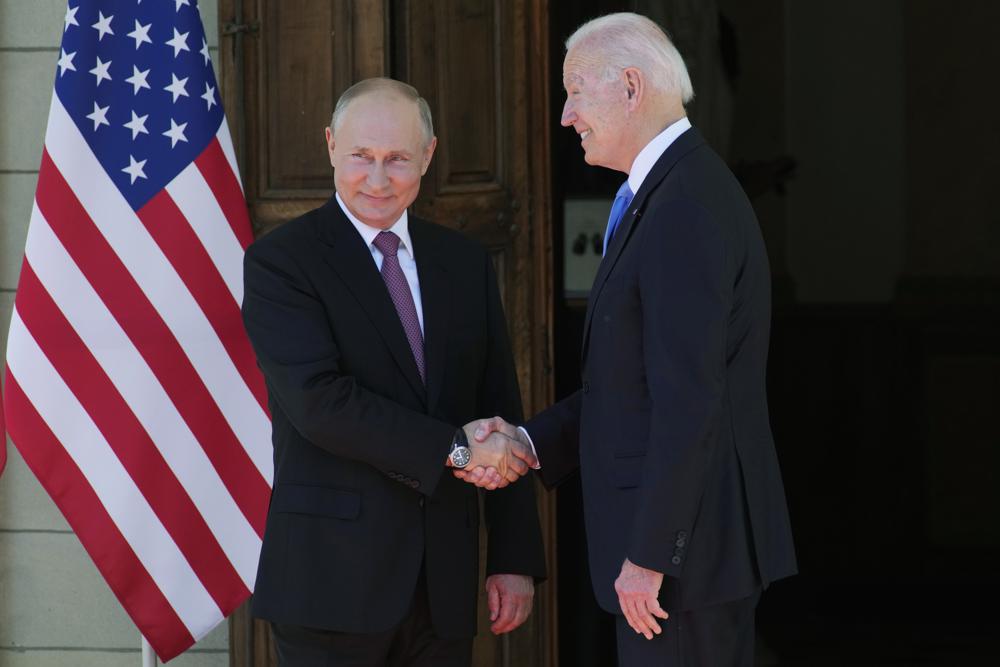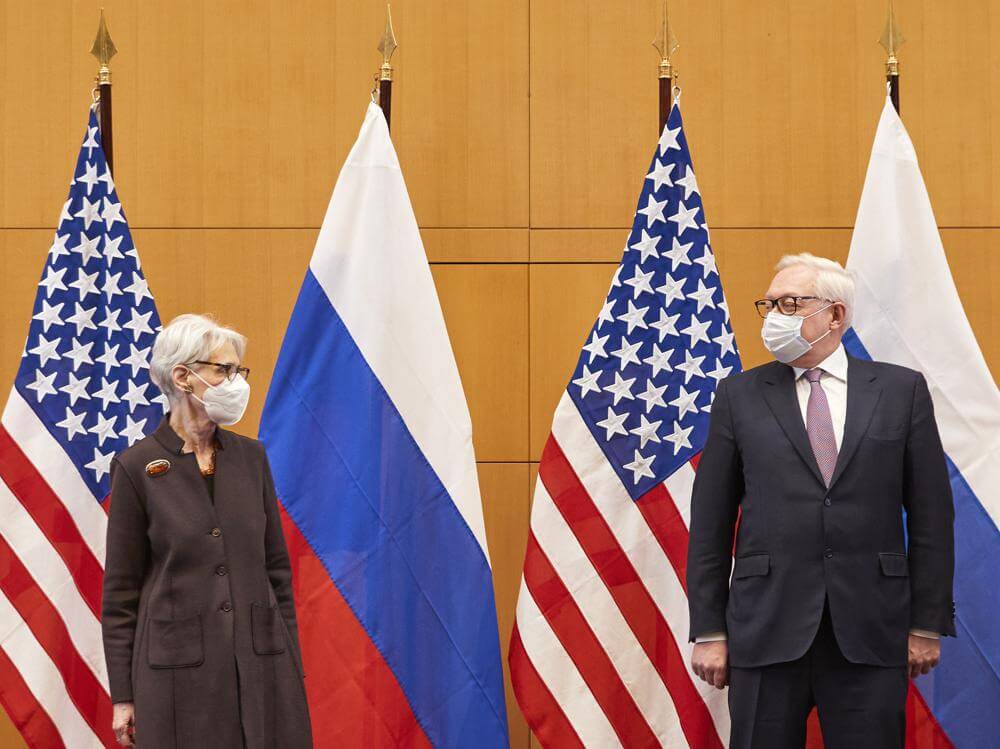On Monday, the United States (US) Deputy Secretary of State Wendy Sherman and her Russian counterpart Sergei Ryabkov concluded the first round of diplomatic talks on the Ukraine crisis.
Speaking to reporters after the eight-hour long Strategic Stability Dialogue (SSD) with Russia, Sherman said that the two delegations held “frank and forthright” talks, with the US willing to engage in more exchanges in the future. Sherman also mentioned that Washington was open to speaking with Moscow about implementing something akin to an Intermediate-Range Nuclear Forces (INF) Treaty, which would regulate America’s missile placement in Europe.
“It was not what you would call a negotiation,” Sherman said, adding, “We’re not to a point where we’re ready to set down texts and begin to go back and forth.”
Also, Sherman stressed that Russia’s protest against North Atlantic Treaty Organization’s (NATO) eastern expansion towards Ukraine is a “non-starter” for the US. She said that it was part of the Alliance’s “open door” policy. Furthermore, Sherman highlighted that with more that 100,000 Russian troops along Ukraine’s borders, Moscow’s aggressive behaviour against Kyiv was disallowing any progress towards stabilisation.
After the meeting, Ryabkov said, “The American side has treated the Russian proposals seriously and deeply studied them.” He added that “no progress” was made on Moscow’s central demand regarding NATO’s eastern expansion, but the diplomat issued Moscow’s support “for the continuation of dialogue.” He also made it clear that Russia had “no intention to ‘attack’ Ukraine,” adding, “there [was] no reason to fear any escalation in this regard.”
However, Ryabkov emphasised that Putin’s demand for legally binding guarantees on NATO's moves eastward were “an absolute imperative” for Moscow, warning that Russia was ready to retaliate with countermeasures that would “inevitably, unavoidably damage security of the US and its European allies.”

Sherman also said that Washington had agreed to talk to Moscow about setting limits on the size and scope of military exercises, but only on a “reciprocal basis,” adding that would be further discussed at an upcoming meeting of the NATO-Russia Council in Brussels on Wednesday. US officials are also set to meet their Russian counterparts at the Organization for Security and Cooperation in Europe (OSCE) meeting at Vienna on Thursday.
In December, Russian President Vladimir Putin had laid out a detailed list of “legally binding” guarantees asking NATO to disallow Ukraine from joining the military alliance, and called on America to cease its military activities near Russian borders. Diplomats from the two states had decided to discuss Putin’s security demands concerning Ukraine in January.
Putin has warned the US that Russia is ready to use military force if the West does not accept its security demands. Ryabkov has also previously stated that Moscow was ready to deploy intermediate-range nuclear missiles in Europe, if NATO did the same.

